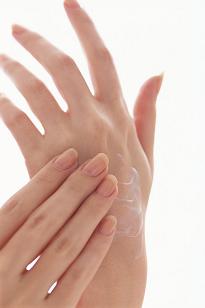 Turns out, lavender is more than just the scent of your favorite lotion! Discover how to use this soothing herb to calm your stomach, mind, and skin—and tap into the power of purple!
Turns out, lavender is more than just the scent of your favorite lotion! Discover how to use this soothing herb to calm your stomach, mind, and skin—and tap into the power of purple!
Ward off dandruff. According to Dr. Fusco, a NY-based dermatologist, lavender oil can help improve scalp conditions.For an easy, herbal remedy, wet your hair with warm water and towel dry. Next, grab a mug and mix 15 drops of lavender essential oil in 2 tablespoons olive oil. Microwave for about 10 seconds or until it feels warm. Massage the oil into your scalp, pop on a shower cap, let set for an hour, and then shampoo the solution out. Though it may take multiple treatments to see the benefits, keep with it. As an added bonus, your hair will smell lovely, too.
Bid bloating adieu. Bloating and poor digestion can result from an overgrowth of “bad” bacteria—a common symptom if you take antibiotics. Fortunately, the polyphenols (a type of antioxidant) in lavender help reduce the “bad” bacteria in your gut,according to Christine Gerbstadt, MD. To reap the benefit, sprinkle dried culinary lavender onto Greek yogurt, and enjoy!
Unwind. Research shows the scent of lavender lowers heart rate and blood pressure, putting you in a relaxed state. To set yourself up for a serious snooze, put a handful of dried lavender in a vase on your nightstand—or use a diffuser with lavender oil. But lavender alone won’t kick sleepless nights. To get the most bang for your lavender, practice other sleep-promoting habits, such asturning in at the same time every night.
Soothe itchy skin.Whether it’s bug bites or dry skin[http://breastreconstructionnetwork.com/10-winter-skincare-tips/], lavender is a natural anti-inflammatory, so it helps reduce itching, swelling, and redness. Dab a drop or two of lavender essential oil on the afflicted area, and wait about 15 minutes for it to seep in. Apply as needed every six to eight hours for the next 24 hours.
Infuse your meal.Add lavender’s healthy phytonutrientsto any meal by using herbes de Provence. Sprinkle the lavender-based spice blend onto sautéed or grilled vegetables, poultry, and whole grains such as couscous, quinoa, or brown rice. Delicious and nutritious!
Have you used lavender as an herbal remedy before? Share your tips in the comments below!








